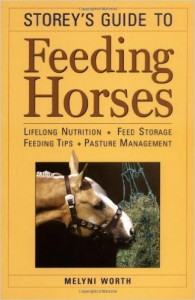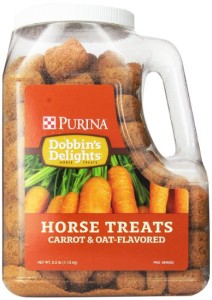The Overweight Horse
When a horse is overweight, and not due to foal soon, you may notice that they have trouble walking. Their gait may have a little bit of a waddle. Their spine may also disappear and become more of a dimple that runs along their spine. Either way, a horse that cannot fit through their stall door is not going to look as good as they should. What causes it?
In most cases, if you have an overweight horse, it means that they are getting too many calories for the amount of exercise that they get or they have a predisposition to being slightly heavier. This could be especially true for ponies that are designed by nature to live in a harsh environment and make the most of everything they are able to eat. If you do not have a lot of grazing room, you may want horses that are easier to keep leveled out, one great breed is the Quarter Horse.
If you have several horses in the same area, the overweight horse could be the dominate one and perhaps it is eating more than others. Perhaps you are trying to keep your horse happy, so you are overfeeding it. Whatever the case, it is going to be important that you try to change it. To do this, you may need to increase the exercise and decrease the amount of food available to them. It is something that you will have to do because most horses will eat what is available to them as a matter of survival. In the wild, it is a great practice. When in your stables, it isn’t as good.
How to Handle an Underweight Horse
One of the first things you should do when you notice that your horse is underweight is to have a veterinarian check them over to ensure that they are not having medical issues. You should then make sure that you do not have a breed that tends to stay on the skinnier side of things. For instance, a thoroughbred has a high metabolism and therefore may need more calories to look great. If the weight issues are in an older horse, you may need to up their protein rather than their calories.
Once you have tried all of these ideas and you still notice that your horse is underweight, you may consider adding a supplement to their diet that is designed to add more weight. These supplements offer extra calories and some even have proteins. They are all designed to help the horse have a healthier digestive system.
Regardless of which issue you are dealing with, keep in mind that a happy, healthy horse should eat about 2% of their body weight daily in foraging either hay or grass. This amount, along with ensuring that they have a variety of good types of forage material to dine on, should help a horse stay at its ideal weight. When it doesn’t, it is okay to try to control it a little better.
 The health of your horse depends on having a well-balanced diet. If they are not eating healthy because of ingesting too many weeds or other “filler” they may be thinner than they need to be. If they are eating too much hay, they may be overweight. It depends on the horse and either issue can cause major health issues. Here are a few things to keep in mind when trying to balance your horse’s diet.
The health of your horse depends on having a well-balanced diet. If they are not eating healthy because of ingesting too many weeds or other “filler” they may be thinner than they need to be. If they are eating too much hay, they may be overweight. It depends on the horse and either issue can cause major health issues. Here are a few things to keep in mind when trying to balance your horse’s diet.